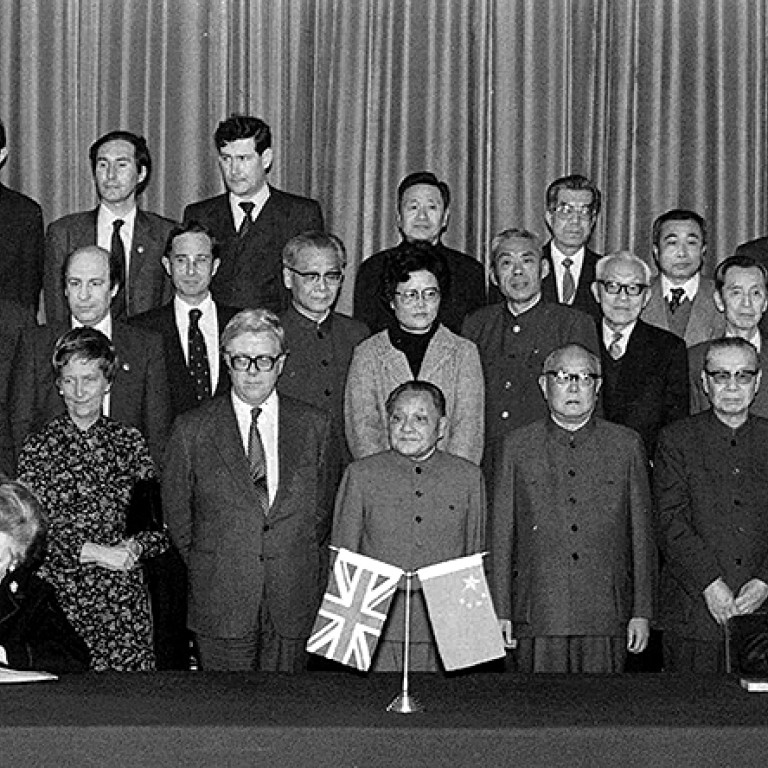
Joint Declaration protects more than just our rights and freedoms
Frank Ching reminds us the Joint Declaration is supposed to protect HK's autonomy in local affairs, not just our rights and freedoms
It's hard to believe that the Sino-British Joint Declaration, which was meant to "ensure lasting stability and prosperity for Hong Kong", was signed almost 30 years ago. It is difficult for people not here then to imagine the tumult in Hong Kong between Margaret Thatcher's visit to Beijing in 1982 and the initialling of the Joint Declaration two years later. The colony went through a series of crises, which saw the currency in free fall and the stock market drop and recover only to drop again.
The Joint Declaration did much to restore confidence. China pledged that Hong Kong would "enjoy a high degree of autonomy, except in foreign and defence affairs".
The biggest fear was that the rights and freedoms would be lost. But they remain largely intact today, something that few people would have believed possible then. I, for one, was surprised that the annual June 4 candlelight vigils continued to be held after 1997 and actually got bigger, and China-watching magazines, whose editors thought they would be banned, continued to publish.
China deserves credit for exercising restraint, even though many people feel that it is now trying to limit press freedom and narrow voting rights. Still, the biggest past fears had to do with much more basic things, such as democrats being thrown in prison and newspapers being shut down, with PLA troops patrolling the streets. Such things did not happen.
It is not surprising, therefore, that the British government, in its latest six-monthly report on Hong Kong this month, concluded: "We consider that 'one country, two systems' continues to work well, in general, and that the rights and freedoms enshrined in the Joint Declaration continue to be upheld."
This has become a mantra. One exception was in 2004 , when foreign secretary Jack Straw acknowledged that the "intervention" of Beijing in Hong Kong's constitutional development "seemed inconsistent with the high degree of autonomy" guaranteed in the Joint Declaration.
In the current report, Foreign Secretary William Hague says: "Hong Kong's success is underpinned by its autonomy, rights and freedoms." Yet, the report's conclusion that "one country, two systems" is working well says nothing about autonomy.
Before 1997, Beijing said Hong Kong could decide on its own when to have universal suffrage elections for all of the Legislative Council. That was changed in 2004 by the NPC Standing Committee. But local elections are not a matter of foreign affairs or defence. Can Hong Kong's autonomy in these matters be abridged by Beijing at will? Will China or Britain explain? Beijing can interpret the Basic Law but it cannot interpret the Joint Declaration.
Britain seems to think that "rights and freedoms" are the only things promised in the Joint Declaration. But that is not true.
Many previous reports used the phrase "at the end of the six month reporting period covered by this report" to suggest that the conclusion applied only to that period. The current report, however, contains no such phrase. Instead, China is given a clean bill of health for the entire 17 years after the handover.

